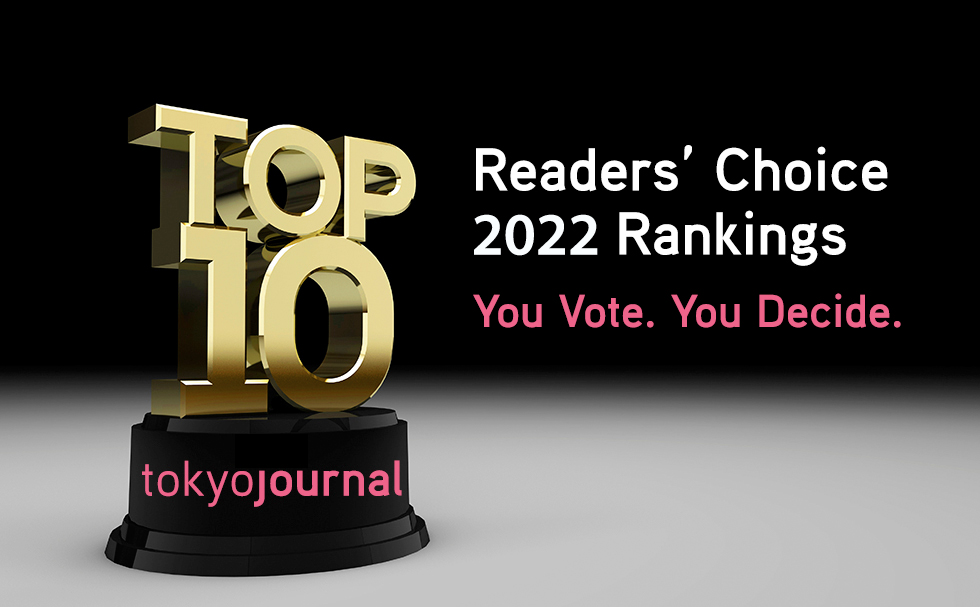Japan America Society of Southern California
President Douglas Erber
Founded in 1909, the Japan America Society of Southern California ( JASSC) builds economic, cultural, governmental and personal relationships between the people of Japan and the U.S. Tokyo Journal Executive Editor Anthony Al-Jamie sat down with JASSC President Douglas Erber to discuss his experience in Japan and in running this non-profit membership organization, which connects individuals and organizations in Southern California with an interest in Japan and U.S.–Japan relations.
TJ: How were you first introduced to Japan?
ERBER: I always had an interest in going to Japan. My best friend growing up was Japanese-American. During my freshman year at California State University, Long Beach, my mom sent me a clipping from a newspaper announcing Sister Cities was searching for students to go to Japan on a two-week sister city exchange with half the trip paid for. This was the second annual exchange between the city of Huntington Beach, my hometown, and the city of Anjo in Aichi, near Nagoya. I applied and trip changed my life. There was something about the people of Japan that really touched me — my host family and everyone I met, even the students, and I’m still in contact with all of them. So, I’ve been involved with Japan thanks to the Huntington Beach Sister City Association and Sister Cities International. Afterwards, I started exporting surfboards to Japan. It is was fairly lucrative and it paid for my college tuition. I took a trip back to Japan in ‘87 to travel around to the different surf shops, and I learned Anjo City wanted to hire a native English speaker. After graduating, I went o to Japan to work for two years at the mayor’s secretarial department in Anjo and also to teach English to junior high students, and then in the evenings to adults. at was a fantastic experience. When I came back, I remained involved with Japan, became involved with the Huntington Beach Sister Cities board and found out about the Japan America Society. That’s why I’m sitting in front of you here today: because of my love of Japan and the relationships I’ve built over the years.
TJ: Can you tell us about JASSC?
ERBER: This is my 23rd year, and it’s my 11th year as president. I believe in the mission and I’ve had some incredible opportunities to meet some really wonderful people I would have never met: the Emperor and Empress, prime ministers, actors, actresses, famous musicians, etc. Right now, we have 145 corporate members: about 60% American, 40% Japanese. On the Japan side they’re basically the household names of Japanese companies, and on the U.S. side they’re companies that either have operations in Japan, do international business, or service those companies here. We have about 2,000 individual members. Some of them are actually in Japan, but a majority of them are here in Southern California — those are about 35% Japanese nationals and the rest are Americans. So basically our members are people who have some connection with Japan or want a connection with Japan: they’ve lived there, they’ve studied there, they work for a Japanese company, they have Japanese clients ... or they just like sushi a lot [laughs] and they like the culture.
TJ: What are your main activities?
ERBER: We have about 23 regular programs. The biggest event we do started in 2014. It’s called “Japan in [year].” The first year we kicked this off, we had the immediate past Japanese ambassador to the U.S., Ambassador [Ichirō] Fujisaki, and the immediate past U.S. ambassador to Japan, Ambassador John Roos, on stage together. We also had other economists debating on foreign exchange, basically to look at Japan overall and make predictions for the upcoming year. We do a lot of educational programs: one of them is called the Japan Bowl of California. It’s a quiz-show kind of team competition for high school students who are studying Japanese. The other one we do is called the Hitachi Japanese Kite Workshops that have benefitted more than 12,000 elementary school children.
TJ: Are you finding that there’s an increased interest in Japan in recent years, especially among the youth?
ERBER: Yes. The biggest gateway to Japan is manga and anime. Almost every one of these students at the Japan Bowl of California [a Japanese language and culture team competition], when we surveyed them, said that was their initial interest. Also, on March 11, 2011, the entire world jumped to aid Japan after the Great East Japan Earthquake, tsunami and nuclear crisis, but no one jumped as fast or as high as the United States. Since then, we’ve been seeing more and more interest in Japan. Moreover, the 2020 Olympics are coming up, and Prime Minister Abe addressed [the U.S.] Congress in 2015 and made the first visit to California in 16 years by a sitting prime minister.
TJ: Tell us the greatest bene t of being a member of the JASSC.
ERBER: Relationship building. For the American side, staying in touch with Japan and the Japanese. For the Japanese, from the consulate to the individual member, we are the gateway to the American community that has an a nity for Japan, which makes doing business easier. tj
The complete article can be found in Issue #278 of the Tokyo Journal. Click here to order from Amazon.



























